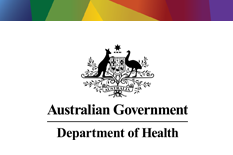The below circular was sent to PHN CEOs on Tuesday 16 February 2021.
-----------------------
Primary Mental Health Care Minimum Data Set Circular 2021/01 – January 2020
Availability of headspace data
Purpose
This circular outlines the availability of headspace (hAPI) data in the Primary Mental Health Care Minimum Data Set (PMHC MDS) for Primary Health Networks (PHNs) from 19 February 2021. The data available will be from the period 2019-20.
The department has been working with headspace National (hN) and Strategic Data to identify a technical solution to include hAPI data into the PMHC MDS. The technical solution has been designed with the intent that:
- headspace National will upload consented data to the PMHC-MDS on behalf of all headspace centres
- PHNs will be able to view aggregate data and download consented unit record data for the services they commission from headspace centres
- The department will be able to view aggregate data and download consented unit record data for all headspace centres
- Local headspace centres will be able to view aggregate data and download consented unit record data for their activity
- Data will be uploaded quarterly and will be available within a month of the quarter’s completion.
This circular outlines the key technical issues to consider when using headspace data.
Access to and use of hAPI data
The PMHC MDS concept of an episode requires that all service contacts and collection occasions for an episode must occur at the same provider organisation. In the headspace context, this would mean that all occasions of service for any single episode would have to be delivered at a single headspace centre.
headspace has a different episode model that allows episodes to span multiple provider organisations and even multiple PHNs (primarily through the introduction of satellite centres). In order to support the headspace model, the PMHC MDS headspace specification was designed to allow for service contacts and collection occasions to be provided by a different organisation to the organisation that initiated the episode.
The hAPI data is being made available in the PMHC MDS to support the department, PHNs, hN and headspace centres in their role of monitoring and reporting on delivery of primary mental health care.
hAPI data in PMHC MDS
There are a number of important factors to consider when reviewing hAPI data in the PMHC-MDS:
-
hAPI data in the PMHC MDS only includes consented records. Therefore, a report drawn from the PMHC MDS will likely differ from the quarterly activity reports provided by headspace National or the headspace Tableau dashboards which include all records as they are reported at an aggregate centre and/or PHN level rather than at the individual level. Similarly, any report directly sourced from a headspace centre may also differ if they have included all records in their report.
The headspace reports in tableau will continue to be available to PHNs and will provide a full aggregated picture of activity at headspace centres.
For information regarding consent please refer to the headspace extranet – ourspace, at https://headspaceaus.sharepoint.com/:b:/r/sites/ourspace/resources/hapi/Shared%20Documents/Reference%20Documents/Primary/hAPI%202.0%20Consent%20Text%20V2.0.pdf?csf=1&web=1&e=gXgkr2
-
All data for an episode of care that has been delivered across multiple headspace centres have been excluded from reports and data extracts. These episodes represent a relatively small proportion of the total headspace episodes (approximately 1%), however a limited number of centres and PHNs will be more affected than others (particularly those with linked satellite services). The Department will issue separate comms to the affected PHNs. The Department is undertaking a review of the PMHC MDS episode model in 2021 to try and address this issue. In the meantime a new report has been created, exclusively for hAPI data, that summarises the data excluded because it is part of an episode delivered across multiple centres (report A12, described below).
-
The Category A-C PMHC-MDS standard reports have been modified to allow for headspace specific reports. The Category D: Key Performance Indicators and Category E: Reports for data managers to monitor data supply series have not been modified as they are not pertinent for headspace. The A5 and B3 reports have had an extra ‘Funding Source’ selector added when viewing headspace data. Two new reports have been added – an A12 – Episodes shared across multiple organisations and B7 – Activity Report – hAPI Funding Source. Details about all reports are available at https://docs.pmhc-mds.com/projects/user-documentation/en/latest/reporting.html has been updated to include headspace reports.
Recording headspace centre activity
With the availability of headspace centre data in the PMHC MDS, hAPI is the data collection vehicle for all activity delivered in a headspace centre, including services such as youth severe. As such, headspace centres will not be required to submit data directly to the PMHC MDS for any activities including those funded outside the core headspace contract. This is to ensure headspace centres can meet their obligations and to avoid duplication of records within the PMHC-MDS.
headspace centres
headspace centres will be able to view reports but will not be able to read or edit the unit record level data in the PMHC MDS system – only hN will have that capacity. headspace centres will be able to download a version of their own data at the unit record level to use for their own local purposes (e.g. into spreadsheets for analysis, etc).
hN will liaise with Strategic Data for each of the headspace centres to gain access to the PMHC MDS to view reports for their activity.
Detailed specifications can be found on the PMHC MDS website https://docs.pmhc-mds.com/projects/data-specification-headspace/en/v2/
The Reports User Guide on the PMHC-MDS website at https://docs.pmhc-mds.com/projects/user-documentation/en/latest/reporting.html has been updated to include headspace reports.
Further information
If you have any questions, please contact General PMHC MDS – Strategic Data support@pmhc-mds.com, (03) 9340 9000
hAPI collection – headspace National support@headspace.org.au
headspace Tableau reporting – headspace National datareporting@headspace.org.au
Other queries? Department of Health mental health research and data mentalhealthdata@health.gov.au
